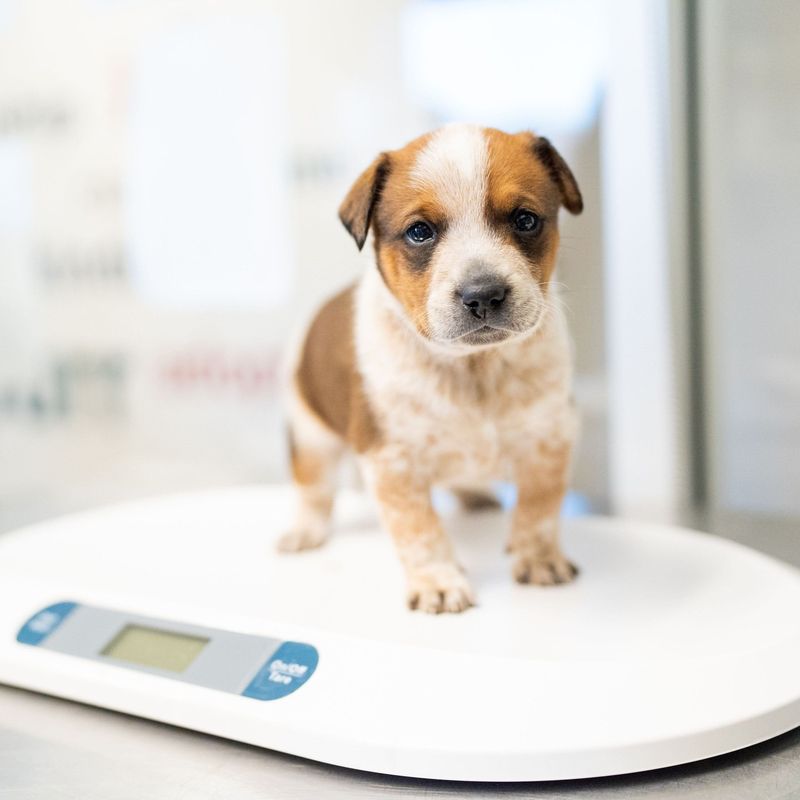9 Pet Nutritionist Approved Signs Your Dog Needs A New Diet

Are you concerned about your furry friend’s health and wondering if it’s time to reevaluate their diet? Dogs can sometimes show signs that their current diet isn’t meeting their nutritional needs.
This list will shed light on key indicators shared by pet nutritionists like Katie McCaul that your dog’s diet might need a revamp. By paying attention to these signs, you can ensure your canine companion remains happy, healthy, and energetic.
1. Lack Of Energy

When your dog seems unusually tired or lacks the usual zest for playtime, it might be a sign of nutritional deficiency. Energy levels are directly influenced by diet, and an inadequate diet can lead to lethargy.
You may notice that your dog who once enjoyed long walks or playtime at the park now prefers to rest more often. Nutritionists suggest evaluating the carbohydrate and protein levels in your pet’s food, as these macronutrients play a crucial role in energy production.
A diet rich in high-quality proteins and complex carbohydrates can restore vigor. If you observe persistent fatigue, consult a pet nutritionist to explore dietary adjustments. They might recommend food that includes essential vitamins and minerals tailored to boost energy.
Monitoring your dog’s energy can help you make informed decisions about potential diet changes.
2. Unhealthy Coat And Skin

A dog’s coat reflects its overall health and nutrition. If you notice your dog’s coat losing its sheen or their skin becoming flaky, it might be time to reconsider their diet. Omega fatty acids are essential for maintaining a glossy coat and healthy skin.
Deficiencies in these nutrients can lead to a dull appearance and itchy, irritated skin. Ensuring your dog’s food contains omega-3 and omega-6 fatty acids can significantly improve their coat condition. Foods rich in fish oils or flaxseed can be beneficial.
Pet nutritionists recommend observing your dog’s fur and skin regularly. If changes persist despite dietary adjustments, it may be wise to seek professional advice. A diet that supports skin health can prevent discomfort and keep your four-legged companion looking their best.
3. Digestive Issues

Frequent digestive troubles, such as diarrhea or constipation, can signal dietary imbalances. A healthy diet should promote regular and easy digestion. If your dog experiences ongoing digestive discomfort, it might be time for a new diet.
Pet nutritionists often suggest looking into the fiber content of your dog’s food. Adequate fiber levels can aid proper digestion and prevent issues like constipation. On the other hand, excessive fiber may lead to diarrhea.
Consulting a vet or nutritionist can help determine the right balance for your dog. A diet tailored to your pet’s digestive needs can alleviate discomfort and improve gut health.
4. Weight Changes

Sudden or unexplained weight changes in dogs can be a concern and often indicate dietary problems. Whether it’s weight gain or loss, both can signify that your dog’s current diet is not meeting their nutritional requirements.
Nutritionists recommend monitoring portion sizes and the caloric content of your dog’s food. A high-calorie diet without adequate exercise can lead to weight gain. Conversely, insufficient calories might cause weight loss and energy depletion. If you notice significant weight fluctuations, it’s crucial to consult with a professional.
They can guide you in adjusting the diet to suit your dog’s specific needs, ensuring they maintain a healthy weight.
5. Bad Breath

While dogs aren’t known for minty-fresh breath, persistent bad breath can be a sign that something is amiss, often linked to their diet. Poor oral health can be exacerbated by food that doesn’t support dental hygiene.
Pet nutritionists suggest diets that include crunchy kibble, which can help reduce plaque buildup, and ingredients that promote oral health. Certain foods are designed to naturally clean teeth and freshen breath.
Regular dental check-ups and adapting a diet that supports oral hygiene can significantly improve your dog’s breath. If the issue continues, despite dietary changes, further investigation may be necessary to rule out underlying health problems.
6. Itchy Or Red Ears

Constant ear scratching or redness can result from dietary allergies or intolerances. Just like in humans, dogs can develop food allergies that manifest as skin irritations, particularly in the ears. If your dog frequently experiences these symptoms, it might indicate a need to change their diet.
Pet nutritionists recommend identifying and eliminating potential allergens, such as certain proteins or grains, from your dog’s food. A hypoallergenic diet can often resolve these issues, leading to healthier ears and less discomfort.
Regularly checking your dog’s ears and considering dietary adjustments is key to managing and preventing these symptoms. Frequent infections can also be an indication of other illnesses, so always make sure to consider vet attention for your dog.
7. Excessive Shedding

Excessive shedding in dogs can sometimes indicate nutritional deficiencies, particularly in essential fatty acids. The health of a dog’s coat is closely tied to their diet, and imbalances can lead to increased shedding.
Incorporating foods high in omega-3 and omega-6 fatty acids can improve coat health and reduce shedding. Foods rich in fish oil or specially formulated supplements can be beneficial.
If you notice your dog shedding more than usual, consulting a nutritionist to explore dietary options is advisable. Maintaining a balanced diet supports coat health and minimizes excessive hair loss.
8. Frequent Infections

Recurring infections or slow healing wounds can be linked to nutritional inadequacies. A robust immune system is crucial for your dog’s overall health and is heavily influenced by diet. Pet nutritionists often emphasize the importance of vitamins and minerals that support immune function.
Foods fortified with antioxidants, such as vitamins A, C, and E, can enhance your dog’s natural defenses. If your dog frequently experiences infections, examining their diet for immune-boosting nutrients can be beneficial. Adjusting the diet to bolster immunity can lead to fewer health problems and a happier pet.
9. Behavioral Changes

Noticing changes in your dog’s behavior, such as increased anxiety or aggression, can be concerning and may be tied to their diet. Nutritional imbalances can affect neurotransmitter function, influencing mood and behavior.
Pet nutritionists suggest diets balanced in essential fatty acids, amino acids, and certain vitamins that support brain health. Foods containing amino acids like tryptophan and omega fatty acids can help regulate mood.
If your dog is acting out of character, consider consulting a nutritionist to evaluate their diet. Adjusting dietary intake to support mental well-being can improve behavior and enhance the quality of life for your pet.






